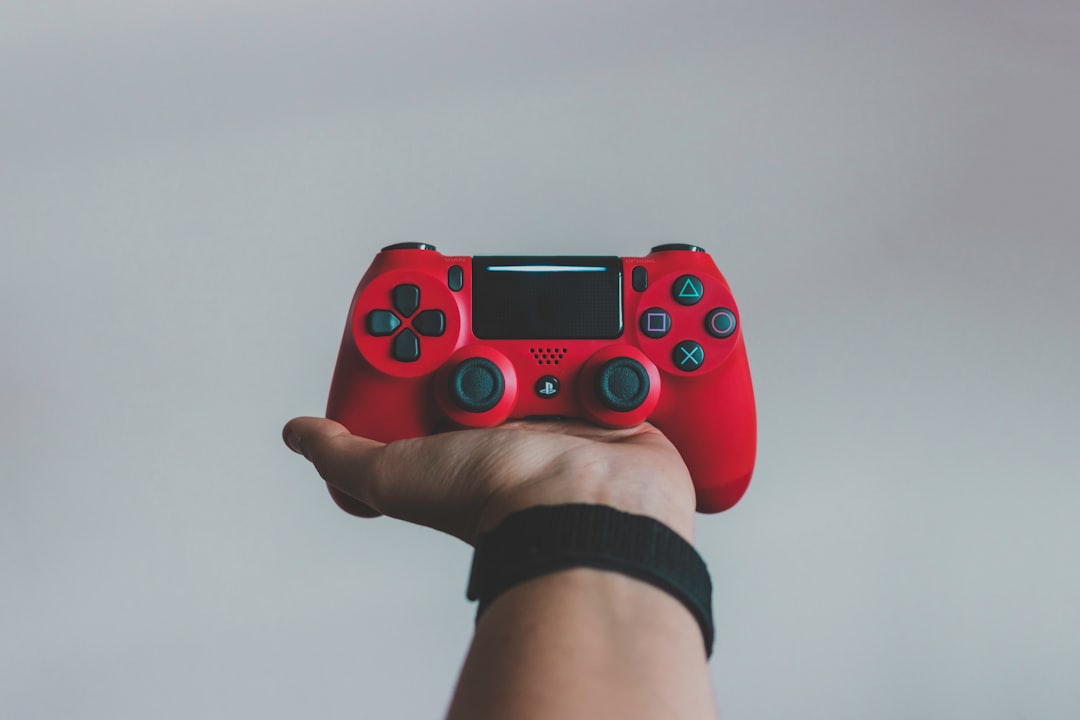I used to think my tight grip on life was a strength. It turned out to be a cage.

For years, I believed that if I could just manage every detail, plan every outcome, and control every variable, I could protect myself from failure and pain. This mindset fueled some of my worst habits. When I was struggling with binge eating, I would try to control every single calorie. I’d create rigid meal plans and obsess over numbers. But the moment one thing went wrong—a craving I couldn’t ignore or a social event with unplanned food—my entire system would collapse. I’d feel like a failure and spiral back into the very behavior I was trying to control.
It took me a long time to realize that my desperate need for control wasn’t a solution. It was the problem. It was an addiction. And like any addiction, it promised security but only delivered anxiety and exhaustion.
Maybe you feel it too. That constant pressure to hold everything together. That quiet fear that if you let go, even for a second, everything will fall apart. If that sounds familiar, you’re not alone. Recognizing the problem is the first step toward finding freedom.
The Illusion of Control
We chase control because we’re afraid. We’re afraid of uncertainty, of being hurt, of not being good enough. We think that if we can just steer the ship perfectly, we can avoid the storms.
But life is a vast ocean, and we are not the captain of the waves. True strength isn't found in gripping the wheel tighter. It’s found in learning to trust the one who made the sea. For me, my journey toward a healthier life wasn’t just about losing weight or quitting bad habits. It was about loosening my grip and strengthening my faith. It was about realizing that my plans are small, but God’s plan is infinite.
This desire for control can show up in subtle ways. You might just think you’re being organized or responsible. But when it starts stealing your peace and straining your relationships, it’s time to take a closer look.
15 Signs of Control Addiction
Read through this list with an open heart. Don’t judge yourself. Just notice what feels true. Seeing yourself in these points is not a failure. It’s an opportunity for a new beginning.
You micromanage others. You hover over people at work or at home, correcting them and making sure they do things “the right way”—which is always your way.
You hate delegating. The thought “If you want something done right, you have to do it yourself” is your personal motto. You’d rather be overwhelmed than trust someone else with a task.
Your plans have backup plans. You don’t just plan for the day. You have contingency plans for every possible thing that could go wrong. Spontaneity feels like a threat.
You get deeply upset by last-minute changes. A friend canceling plans or a change in schedule doesn’t just annoy you; it throws off your entire sense of stability and peace.
You give unsolicited advice constantly. You truly believe you know what’s best for others, and you feel compelled to share your wisdom, even when no one has asked for it.
You struggle to relax. Even on vacation, your mind is racing, planning the next activity, or worrying about things back home. True rest feels impossible because you can’t switch off your inner manager.
You take on everyone’s problems. You feel personally responsible for the happiness and success of your friends, family, and colleagues. Their struggles feel like your failures.
You are highly critical. You easily spot flaws in other people’s work, plans, or choices. This isn't because you're mean, but because you see any deviation from your "optimal" way as a problem to be fixed.
You avoid vulnerability. Showing weakness or admitting you don’t have an answer feels terrifying. You maintain a front of having it all together, all the time.
You have trouble admitting you’re wrong. Apologizing is difficult because it means acknowledging a flaw in your judgment or execution. You’d rather defend your position to the end.
You feel anxious when you’re not the one in charge. As a passenger, you’re a nervous wreck. In a group project, you naturally take the lead because the alternative is too stressful.
You keep score. In relationships, you have a mental tally of who did what, who put in more effort, and who owes whom. It’s a way of managing fairness and preventing yourself from being taken advantage of.
You over-research every decision. From buying a new toaster to picking a restaurant, you spend hours reading reviews and comparing options to ensure you make the absolute “best” choice.
You have a hard time listening. In conversations, you’re often just waiting for your turn to speak so you can fix the problem or offer your solution.
You believe your feelings are facts. If you feel anxious, you believe there must be a real threat. You trust your fearful feelings to guide you, which only deepens your need to control your environment.
How to Loosen Your Grip
If you saw yourself in that list, take a deep breath. This isn’t a life sentence. Freedom is possible, and it starts with small, intentional steps away from control and toward trust.
Surrender One Thing to God
This was the biggest game-changer for me. Instead of trying to white-knuckle my way through life, I started to consciously hand my worries over to God. I began my day with a simple prayer, not asking for my plans to succeed, but asking for the strength to accept His plan, whatever it may be. Start by identifying one specific worry—a work project, a family issue, a financial concern—and make a conscious choice to place it in His hands. Trust that He is bigger than your problem.
Celebrate Small Surrenders
You don’t have to let go of everything at once. Start small. Let your spouse pick the movie without researching it first. Let a coworker handle a project without checking in every hour. When you do it, acknowledge it as a win. I didn’t lose over 110 pounds by controlling the outcome on the scale. I did it by focusing on one good choice at a time: choosing a healthy meal, going for a walk, getting enough sleep. Each small win built momentum. The same goes for letting go. Celebrate each time you choose trust over control.
Focus on Your Own Lane
A huge part of control addiction is trying to manage everyone else’s life. Make a conscious effort to focus only on what is truly your responsibility: your actions, your attitude, and your faith. When you feel the urge to correct or advise someone, pause and ask yourself: "Is this my responsibility?" More often than not, the answer is no. This frees up an incredible amount of mental and emotional energy.
Your First Step to Freedom
The opposite of control isn’t chaos. It’s peace. It’s the freedom that comes from knowing you don’t have to hold the world on your shoulders because someone far greater already is. My journey is far from over, and I still have days where the old desire to control everything creeps back in. But now I know what to do. I turn my focus away from my own frantic planning and toward God’s steady presence.
So I ask you this: what is one small thing you are trying to control today that you can choose to release?
Just one. Start there. That single act of letting go might be the start of a whole new way of living.





